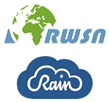Rainwater Harvesting in Los Angeles
| Topic | Conversation | Images / Documents |
|---|---|---|
| Rainwater Harvesting in Los Angeles |
Dear All, Los Angeles imports nearly 85 percent of its water. However the city will need to become more water self-reliant to survive the rest of this century, and capturing local rain can be one of the solutions. In the past decade and a half, a few local environmentalists have been collaborating with city and county officials to rewrite the plan for water. This article describes how small rainwater harvesting projects in Sun Valley, initiated by the local organizations “The Council for Watershed Health” and “TreePeople”, became test cases for boosting the water supply across the entire region. The article is written by Madeline Ostrander for Cities are Now, the winter 2015 issue of YES! Magazine. Kind regards, MetaMeta Team |
LA Imports Nearly 85 Percent of Its Water—Can It Change That by Gathering Rain? |
| Thanks a lot for that heart warming article on how a water guzzler like LA finally seeing the rain in a different way. I used to read 'Cadillac Desert' of Marc Reisner, as a bible, on how not to build a city.
If interested, I would suggest you browse REENGINEERING BIG CITY INFRASTRUCTURE to learn how to manage the storm water in a big city better, cheaper and healthier, even if you do not want to drink it. In fact,the best use of storm water is in urban gardening, for food. - K |
||
| Many thanks for this encouraging article.
I look forward to a time when RWH will be adopted by responsible government agencies in Nigeria as a reliable source of source of water supply for the rural communities. - C | ||
| Hello C, Happy New Year to you and all other members of this group. I want to assure you that RWH technique has been adopted in Nigeria as sustainable technique of obtaining safe and clean water. The PVC companies have begun designing RWH accessories used in roofing of buildings and Nigerians have adopted and commenced use of them. I will send you pictures of the accessories later. In fact RWH in Nigeria has moved up from traditional techniques you use to know now to much improved system. The next level is discussions on how to make the system safe and hygienic. Please note that all Nigeria governments past and present are responsible except that they may not be aware of some technology or practice that will be useful to their people at a point in time. Good citizens like you must acquire knowledge in those sustainable technologies and come home to step them down to both government and non-government actors. Cheers - C | ||
| Hi C,
Many thanks for the update. I do acknowledge that Nigeria governments past and present are responsible. It may please you to know that I am already conducting a research linked to RWH in Southeast Nigeria. I will share my findings on RWSN in due time. Best regards - C | ||
| Dear C, Further to C's reply, I am pleased to inform you that National Water Resources Institute, Kaduna (NWRI) in collaboration with UNICEF Nigeria has trained Local Government Officials and Community Leaders on Rainwater Harvesting as alternative Rural Water Supply since 1995. We are aware of successful schemes in Edo,Kogi and Benue States. Please contact Staff of the National Rural Water Supply & Sanitation Centre of the Institute for further assistance if needed. - O |

